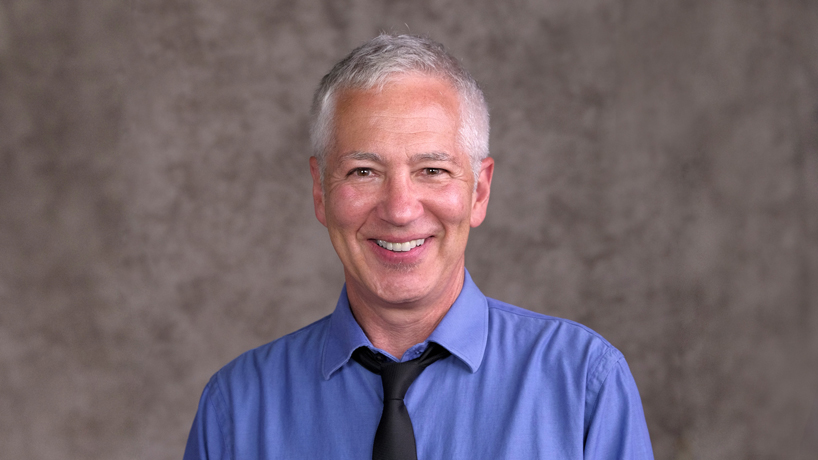
Curators’ Distinguished Professor Emeritus Richard Rosenfeld was named to the Council on Criminal Justice’s inaugural class. (Photo by August Jennewein)
Richard Rosenfeld, a Curators’ Distinguished Professor Emeritus of criminology and criminal justice at the University of Missouri–St. Louis, joined politicians, judges, law enforcement officials, professors and other policy advocates and influencers from around the country as part of the Council on Criminal Justice’s inaugural membership class, announced earlier this week.
Rosenfeld, one of the nation’s leading experts researching and interpreting data on crime, was one of fewer than 10 social scientists named among the more than 100 members.
“It’s a pretty august group of people to be associated with,” Rosenfeld said.
The Council on Criminal Justice’s stated mission is to advance understanding of the criminal justice policy choices facing the nation and build consensus for solutions that enhance safety and justice for all. It is independent and nonpartisan invitational membership organization and think tank, intended to be an incubator of policy and leadership in the field of criminal justice.
“It’s an organization that makes recommendations about criminal justice policies, evaluates criminal justice policies and is not, strictly speaking, an advocacy organization like so many others,” Rosenfeld said. “It’s an organization that certainly tries to limit its recommendations and evaluations on the basis of the best available evidence, no matter where it might lead.”
In its announcement of the new class, the council stated that “by building a membership of top experts, innovators and influencers, the Council creates a center of gravity for the field, elevates the field in stature and clout, and helps build relationships among those with the ability to shape the direction of policy and practice and the quality of the national conversation.”
The council hopes membership will serve to acknowledge the accomplishments of leaders in their respective fields and also give the next generation of leaders in criminal justice an honor to which they might aspire.
Rosenfeld’s affiliation with the council began began last year when it asked him to write a report examining the legacy of the Violent Crime Control and Law Enforcement Act of 1994, better known simply as The Crime Bill, signed into law by President Bill Clinton.
He’s since been asked to look more specifically at the law enforcement implications of The Crime Bill, work that will incorporate last month’s killing of George Floyd in Minneapolis.
More recently, the Council has asked him to consider submitting ongoing research he’s been doing with CCJ senior fellow Thomas Abt and UMSL doctoral student Ernesto Lopez on the impact of the social response to the COVID-19 pandemic on crime rates.
They already conducted a study, with support from the Arnold Ventures foundation, on the impact of stay-at-home orders and business closings on homicide rates in 64 large-size cities. The study included the 30 cities with the highest populations in the United States and examined the homicide rates in April and May. They found that homicides had declined compared to the three-year averages from those months in those cities.
“As we expected, the decline in April was about twice as large as the decline in May,” Rosenfeld said. “That makes some sense as places, especially in the South but also elsewhere, began reopening and activity levels increased.
“We ended that piece with a strong cautionary note. I certainly believe that, come June, July, through the summer, we’re going to see an increase in homicide and other violent crimes in part associated with the social unrest.”
He pointed to the rise in crime that followed widespread unrest over police violence, emanating from places such as Ferguson and Baltimore, in 2015 and 2016.
CCJ has asked Rosenfeld and his colleagues to build on their research for Arnold Ventures and extend it through June with the hope they might release their findings in July along with work being conducted on the impact of COVID-19 on other criminal justice issues. In addition to homicide rates, they would also examine rates of other serious violent crimes as well as property crimes.
Rosenfeld, Abt and Lopez already intend to investigate those trends through the end of the year with plans to submit a paper to the journal Criminology & Public Policy. The journal is expected to publish a special issue next year devoted to COVID-19, crime and criminal justice.














